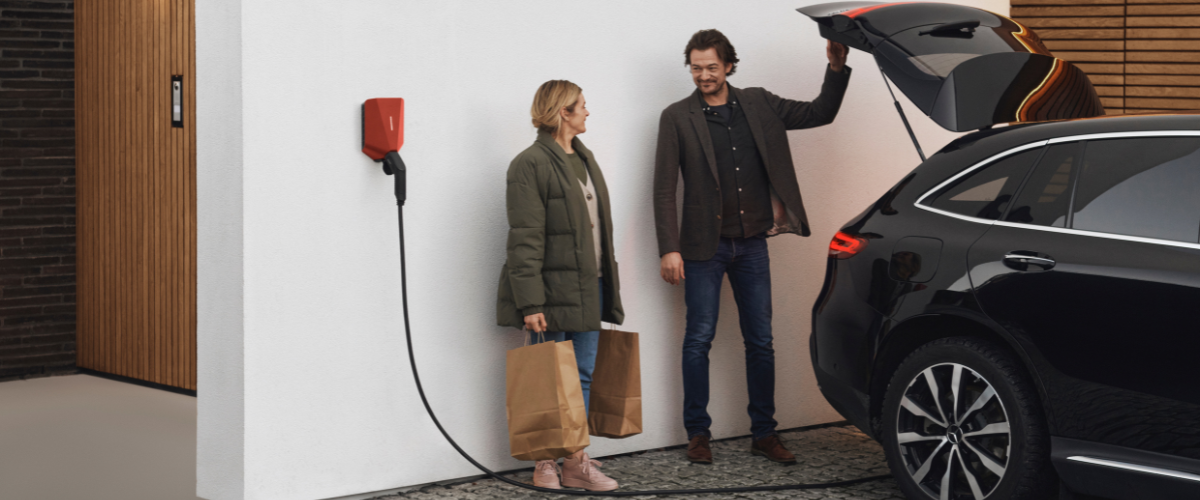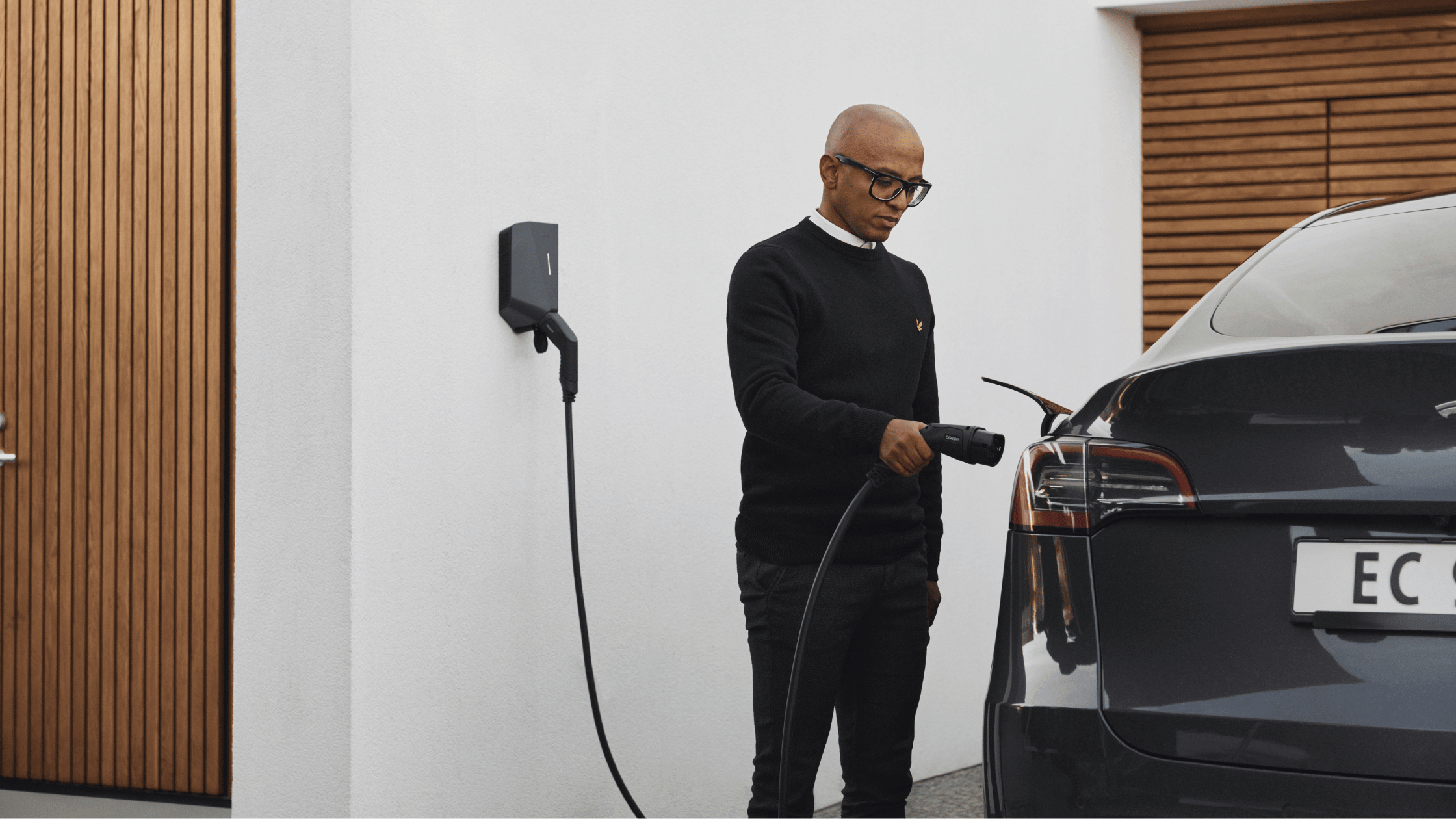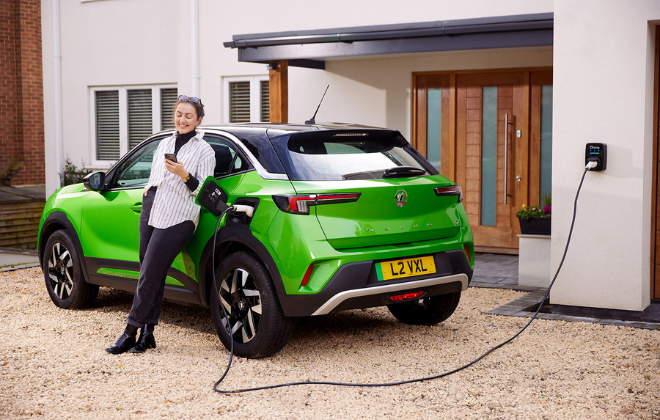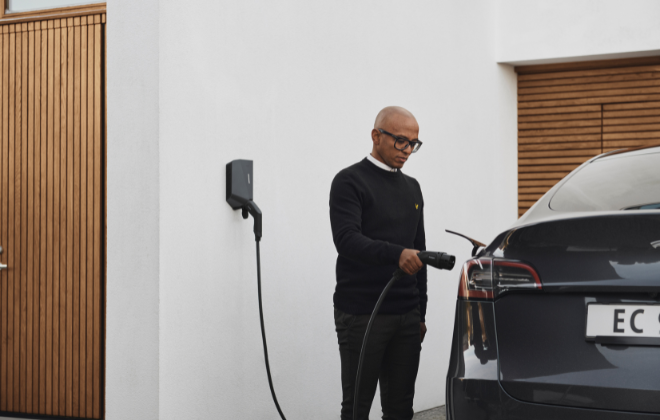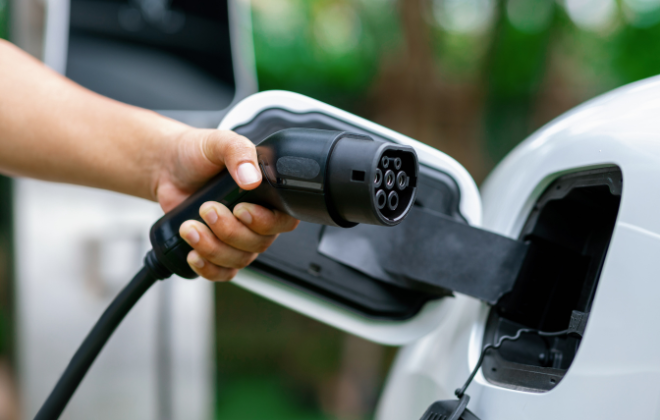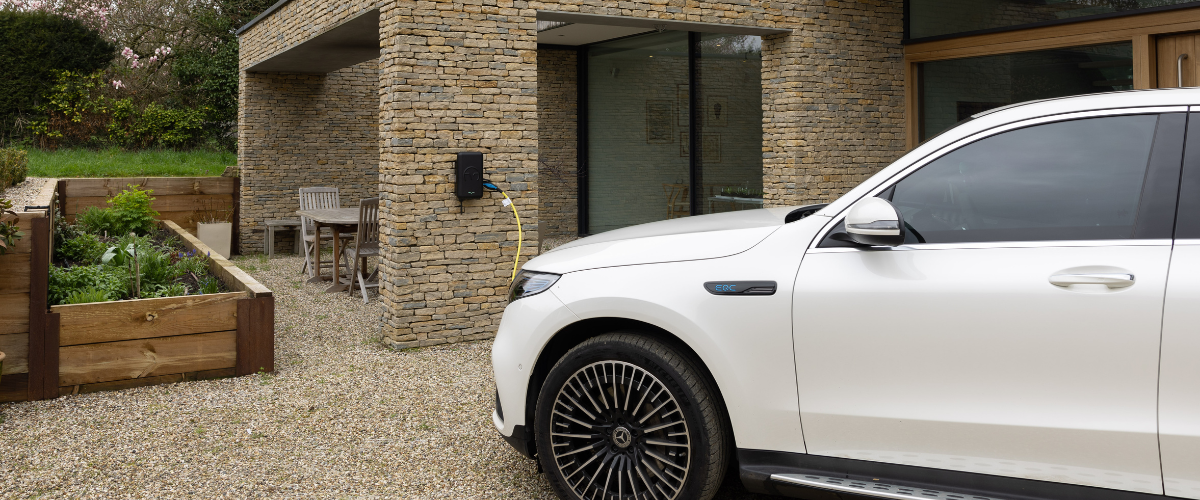

How far can an electric car go on one charge?
How far can an electric car go on one charge?
Understanding the range capabilities of electric cars is crucial for planning long trips, considering daily commutes, and gaining confidence in making the switch to electric. And so, it comes as no surprise that a frequently asked question is how far can an electric car go on one charge?
In this blog, we will provide you with everything you need to know about how far an electric car can travel on a single charge, in addition to providing a background on electric car range, from factors influencing range to reasons why range anxiety is a thing of the past.
But, in short, an electric car can go anywhere between 150 miles to 300 miles on one charge – but the exact number depends on your EV model.
What is electric car range?
Electric car range refers to the maximum distance an electric vehicle can travel on one full charge. And it’s one of the most critical factors for prospective EV buyers when making the switch to electric.
Different variations of the term ‘EV range’ also exist, including ‘manufacturer range’, ‘estimated range’, and ‘real range’, but they all refer to how far an electric car can go on a single charge. But, since it’s difficult to identify one set range, these different names exist – i.e., the ‘manufacturer range’ is set by the manufacturer, which may differ from ‘real world range’, which takes into consideration external factors that may influence your EV range, such as weather conditions.
When discussing electric vehicles and their range, the term ‘range anxiety’ frequently appears alongside it – but what is range anxiety?
Range anxiety
Range anxiety is the fear of running out of battery charge before reaching your intended destination. This anxiety stems from the stigma surrounding the range of electric vehicles being much smaller compared to how far traditional gas-powered vehicles can travel on a full tank. Moreover, range anxiety is exacerbated by the myth that there are not enough electric vehicle chargers across the UK.
Of course, the fear of being stranded without an EV charger nearby can be a concern for EV drivers or owners of petrol and diesel cars interested in making the switch to electric, particularly if they’re more inclined to undertake longer journeys regularly.
Should you be worried about EV range?
In our professional opinion, no, you shouldn’t worry about EV range – here’s why:
1. Number of EV chargers: With a whopping 64,775 chargers across the UK the number of electric vehicle chargers has increased dramatically and will only continue to grow. Not only are EV chargers being installed at home but also at workplaces and popular public spots, improving accessibility to EV charging facilities.
2. New industry developments: Previously, EV owners who didn’t have off-street parking couldn’t have a dedicated home charger installed on their property and would have to resort to three-pin plug charging. But now, with the introduction of EV charging solutions such as the ChargeArm, this is no longer an issue. Advancements in battery sizes also mean electric cars with much bigger ranges are coming to market.
3. Average daily mileage: On average, people drive 20 miles per day in the UK, meaning even if you invested in the smallest EV on the market – the Smart EQ fortwo with a range of approximately 60 miles – you’ll be able to meet the average daily needs. Of course, if you’re someone who frequently travels, whether for pleasure or business, or you travel long distances, you’ll likely need to invest in an EV with a larger battery.
4. EV apps: Various charging apps, such as Zap-Map, are available to help you plan your journeys and find your nearest charging station, ensuring you know when you need to stop and top up.
How far can an electric car go on one charge?
In previous years, if you were looking at how far an electric car could go on one charge, your answer would have been averaging around the 100-mile mark. But, with significant advancements in the industry, nowadays, an electric car can go between 150 miles – 300 miles on one charge, averaging roughly 211 miles.
That being said, the exact range depends on the model and can vary substantially. For example, the smallest range on the market, as previously mentioned, is the Smart EQ fortwo coupe, with a 60-mile range, and the longest range on the UK market is the Mercedes EQS, with a whopping 453-mile range.
On a worldwide scale, the Lucid Air Dream Edition R electric car provides one of the biggest ranges – 520 miles on a full charge – showcasing how EV technology is advancing drastically and how premium electric car ranges can – and likely will – reach 500-mile heights.
Another important point to note is how several factors can impact the stated manufacturer range of an electric car – such as weather and driving style – decreasing (or increasing) how far your electric car can go on one charge. Take the Tesla Model Y – the manufacturer’s range is 331 miles, but in cold weather conditions, the electric car range can drop to approximately 205 miles, making it hard to set a specific figure.
The good news is that as the industry grows and technology develops, the average electric car range will likely inch its way into the 300-mile mark in the future.
Here are the top seven EVs and their real range estimation and manufacturer range:
| Model | *Real range estimation | Manufacturer range |
| Tesla Model Y | 215 miles | 331 miles |
| Tesla Model 3 | 250 miles | 374 miles |
| Kia e-Niro | 240 miles | 282 miles |
| Volkswagen ID.3 Pro | 220 miles | 266 miles |
| Nissan Leaf | 145 miles | 168 miles |
| MINI Electric | 110 miles | 145 miles |
| Polestar 2 (standard range single motor) | 240 miles | 321 miles |
*Real range estimations sourced from Electric Vehicle Database.
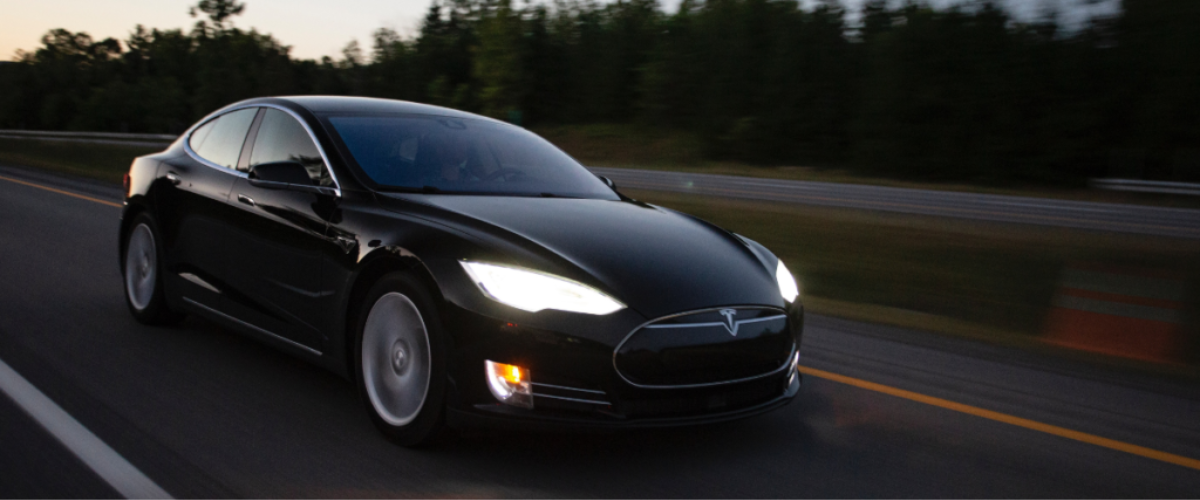
What factors impact electric vehicle range?
As previously mentioned, electric car range can be influenced by several factors:
1. Battery capacity
The size and capacity of an EV’s lithium-ion battery can determine how much energy it can store and for how long an electric car can travel on a single charge. The general rule of thumb is the larger the battery, the more extensive the range. Although, you should also expect that this will come with a heavier price tag.
2. Driving conditions
Certain driving conditions, such as weather, traffic, and terrain, can affect your EV battery range. For example, if you’re stopping and starting in traffic frequently or driving up a steep hill, this can negatively impact your EV’s range.
3. Driving style
How you drive your electric car can impact its range – aggressive acceleration and frequent stopping and starting can drain your electric car’s battery quicker than usual. Practise driving smoother and consistently to maximise range.
4. Vehicle weight
Simply put, the heavier your EV is, the more your standard range will decrease. This is important to remember when taking trips away where the luggage will surely weigh down your EV. Take note of your nearest EV chargers with Zap-Map when planning weekend getaways.
5. Temperature/weather
Extreme temperatures and weather conditions can impact an EV’s range. However, they influence the range in different ways. While cold weather decreases battery efficiency, hot weather encourages the use of features such as air-con which drains your battery and reduces your range.
6. Vehicle aerodynamics
An EV’s aerodynamics (how a car is designed with regard to air resistance) can increase its range. When an EV is more aerodynamic, such as the Tesla Model S, Mercedes EQS, and Porsche Taycan, it can help reduce air resistance and improve battery efficiency.
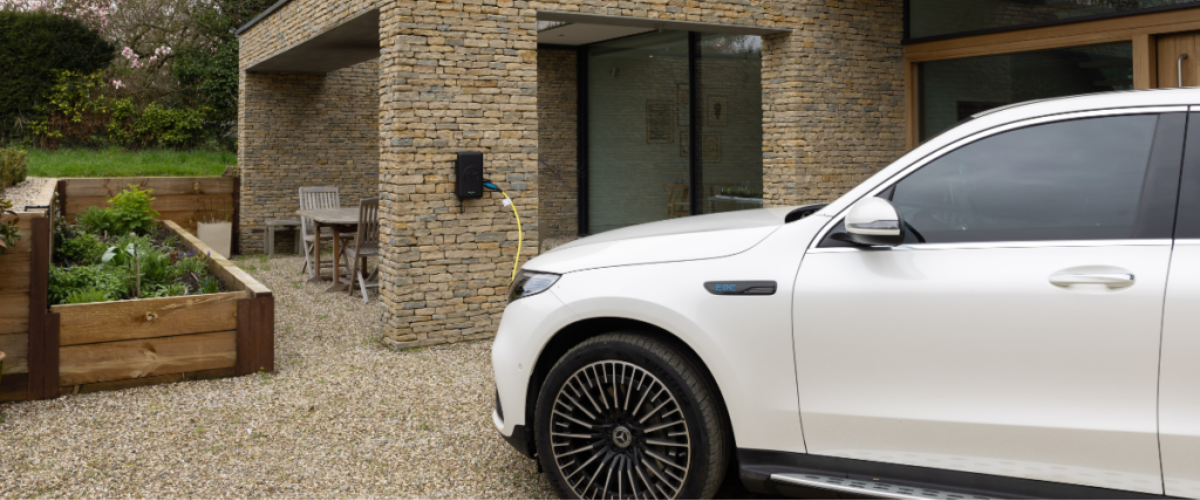
Summary:
- Electric car range refers to the maximum distance an electric vehicle can travel on one full charge.
- In 2024, electric cars can travel between 150 miles-300 miles on a full charge, but the exact figure depends on the EV model. More expensive electric vehicles nowadays can reach heights of 400-500 miles on a full charge.
- External factors, including battery capacity, driving style, driving conditions, weather conditions, vehicle weight, and vehicle aerodynamics can impact EV range.
Do you have an electric car?
Opt for more convenient charging sessions and reduce range anxiety simultaneously by investing in a home EV charger. Faster, smarter and cheaper, you can garner a multitude of benefits from charging your EV from the convenience of your home.
If you are looking to get an EV charger installed at your home, click below to get your free quote, or contact us for more information or any queries you may have.
For more information and our latest updates, follow us on Facebook, Instagram, Twitter, LinkedIn and YouTube.
Related articles_
Stay up to date on the latest from We Power Your Car_
I consent to receive newsletters from We Power Your Car. Please see our Privacy Policy
